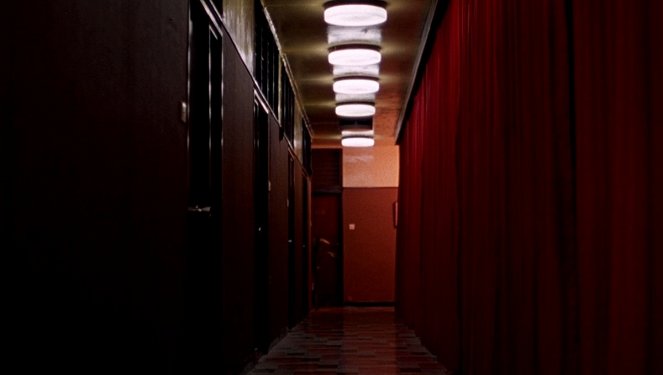Regie:
Kar-wai WongScenario:
Kar-wai WongActeurs:
Tony Leung Chiu-wai, Maggie Cheung, Roy Cheung Yiu-yeung, Julien Carbon, Laurent Courtiaud, Rebecca Pan, Ping-Lam Siu, Man-Lei Chan, Pauline SuenStreaming (1)
Samenvattingen(1)
In het Hongkong van 1962 worden meneer Chow en mevrouw Chan buren. De eerste toenaderingspogingen tussen hen komen tot stand als ze beseffen dat hun echtgenoten waarschijnlijk een affaire met elkaar hebben. Ze beramen een wraakcomplot en beginnen een relatie met elkaar, die een grote onzekerheid is. Maar kan hun relatie bestaande uit behoefte en verlangen stand houden? (C-Films)
(meer)Video's (2)
Recensie (6)
An at times impressive and pleasantly intimate drama for calm souls. The appealing HIM and the beautiful and natural HER, seeking solutions, a bit of happiness, and courage. But it's a pity that with distance also comes the realization that the film is just beautifully shot nothingness, which will soon be lost in the wind.
()
A visually beautiful, sensitively made film that would be perfect if it just had a decent story. Still, it's an entertaining and at that slow pace surprisingly suspenseful romance that's easy to fall into. I had to figure a lot of things out in the end, and much of it will remain shrouded in mystery forever, but when all’s said and done that doesn't really bother me.
()
Wong Kar Wai’s intoxicating puzzle comprising moments of excruciatingly chaste love and quiet longing is composed of glances, gestures, still lifes, colours and delicately chosen borrowed music. All of the cinematic means of expression are used here to create and sustain an atmosphere in which the heightened emotionality of hidden love is combined with plaintive melancholy and veiled in dreamy nostalgia. Tony Leung’s sad eyes and Maggie Cheung’s graceful silhouette in a collection of exquisite cheongsams with expressive patterns become the emblems of this fragile work. In fact, it’s almost paradoxical that In the Mood for Love deals with the fleetingness of moments when Wong is capable of imprinting them so incredibly intensely on film, even though that is due to tremendous work in the cutting room following his creative method, where he lets the actors, who are absolutely immersed in their characters, develop only vaguely outlined situations through improvisation. From this flow of time captured on a pile of material, he subsequently seeks out the moments in which the slightest change in facial expression mirrors an inner emotional storm. What’s rather surprising is the unexpectedly funny, though still emotionally stirring motif of the games that the two platonic lovers play with each other. Because of their concerns about the emotional impact of foreseen situations, they practice their reactions, only to succumb completely to their hidden feelings at the given moment of the test. ____ In addition to the depiction of a relationship and a masterful ode to love, In the Mood for Love is also a metaphor for Hong Kong as a lively space and a crucible of relationships, identities and political contexts. Wong intentionally leaves the contrast of intimate space and external history aside for most of the time, instead composing most of the film from cut-outs of the characters’ immediate personal environments. In nostalgic retro vignettes, he also highlights the solidarity and togetherness of people based on more than just the shared spaces of rented rooms in the apartments of families with grown-up children. The sudden intrusion of major history at the end of the film, even in the form of something as banal and peaceful as an official state visit, is thus all the more incongruous and radical. Wong thus carefully points out the historical context that he subtly hints at earlier in the dialogue, when the supporting characters mention their plans to leave Hong Kong because of the tense situation there. The film is set in the period of the left-wing demonstrations of the 1960s, but at the time when it was being made, it resonated with the exodus of Hong Kong residents due to Britain’s handover of the colony to China. The impact of such an exodus and severing of ties is depicted in the tragic passing of the central characters in the last part of the narrative. The final segments with the temple spaces, whose walls are imprinted with the life stories, desires and emotions of the people, but which are completely devoid of life, seem to foreshadow a vision of a dehumanised Hong Kong stripped of its identity, which is formed by its residents, such as those whose yearning we have been observing throughout the film. Today, when Hong Kong filmmakers have to resort to self-censorship due to China’s enforcement of the national security act, In the Mood for Love can be an instructive example of how to work with hints and hidden meanings while preserving the essentially local atmosphere of films. On the other hand, the bitter fact that Wong’s subsequent films lack both the authenticity and emotional urgency of his work shaped by the genius loci of Hong Kong at the end of the 20th century perhaps best attests to the merciless fleetingness and inimitability of that era, when Hong Kong was still able to search for and explore its identity before it was forced to fight for it, suffer for it and then silently remember it.
()
(minder)
(meer)
The stylization is beautiful and Kar-wai Wong proves that he is a tremendously talented director. The music also reaches the highest spheres of quality. The actors too. But it completely lacks any internal energy, which is fundamental to this type of movie. What good is a beautiful exterior when the interior is so bland?
()
I should give this drama, which is actually a very specific romance, another chance because I feel like there's a bit more in the film than I initially accepted on first viewing. Stylistically, it seemed absolutely excellent to me, with great scene arrangement including the costumes of the actors, but even so, I couldn't fully connect with the characters. Despite that, this should be something I'd really like thematically...
()
Galerie (97)
Foto © USA Films




Reclame